Related Research Articles

Brian Wilson Aldiss was an English writer, artist and anthology editor, best known for science fiction novels and short stories. His byline reads either Brian W. Aldiss or simply Brian Aldiss, except for occasional pseudonyms during the mid-1960s.
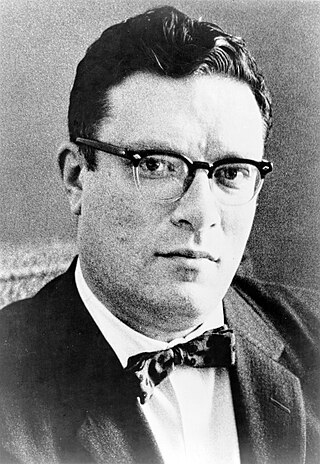
Isaac Asimov was an American writer and professor of biochemistry at Boston University. During his lifetime, Asimov was considered one of the "Big Three" science fiction writers, along with Robert A. Heinlein and Arthur C. Clarke. A prolific writer, he wrote or edited more than 500 books. He also wrote an estimated 90,000 letters and postcards. Best known for his hard science fiction, Asimov also wrote mysteries and fantasy, as well as popular science and other non-fiction.

Philip José Farmer was an American author known for his science fiction and fantasy novels and short stories.
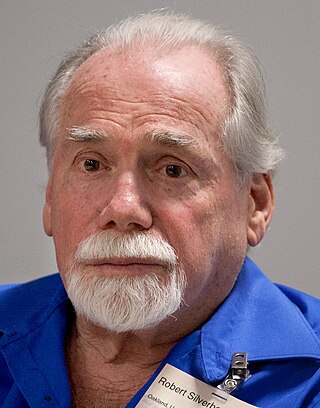
Robert Silverberg is a prolific American science fiction author and editor. He is a multiple winner of both Hugo and Nebula Awards, a member of the Science Fiction and Fantasy Hall of Fame, and a Grand Master of SF since 2004.
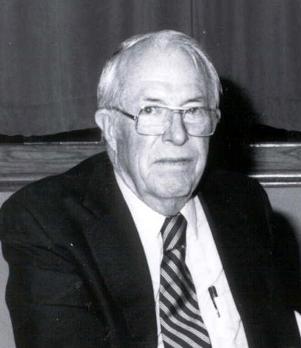
John Stewart Williamson, who wrote as Jack Williamson, was an American science fiction writer, one of several called the "Dean of Science Fiction". He is also credited with one of the first uses of the term genetic engineering. Early in his career he sometimes used the pseudonyms Will Stewart and Nils O. Sonderlund.

Man Plus is a 1976 science fiction novel by American writer Frederik Pohl. It won the Nebula Award for Best Novel in 1976, was nominated for the Hugo and Campbell Awards, and placed third in the annual Locus Poll in 1977. The story is about a cyborg, Roger Torraway, who is designed to operate in the harsh Martian environment so that humans can colonize Mars.

Inconstant Moon is a science fiction short story collection by American author Larry Niven that was published in 1973. "Inconstant Moon" is also a 1971 short story that is included in the collection. The title refers to "O, swear not by the moon, th' inconstant moon", a quote from the balcony scene in William Shakespeare's Romeo and Juliet. The collection was assembled from the US collections The Shape of Space and All the Myriad Ways.
Prosthetics, the artificial replacement of organic limbs or organs, often play a role in fiction, particularly science fiction, as either plot points or to give a character a beyond normal appearance. Numerous works of literature, television, and films feature characters who have prosthetics attached.
The use of nanotechnology in fiction has attracted scholarly attention. The first use of the distinguishing concepts of nanotechnology was "There's Plenty of Room at the Bottom", a talk given by physicist Richard Feynman in 1959. K. Eric Drexler's 1986 book Engines of Creation introduced the general public to the concept of nanotechnology. Since then, nanotechnology has been used frequently in a diverse range of fiction, often as a justification for unusual or far-fetched occurrences featured in speculative fiction.
"Segregationist" is a science fiction short story by American writer Isaac Asimov. The story was written in April 1967 and was first published in December in Abbottempo, a magazine produced by Abbott Laboratories, then later included in the collections Nightfall and Other Stories (1969), The Complete Robot (1982) and Robot Visions (1990).

Louis Sergio Antonelli was an American speculative fiction author who wrote primarily alternate history, secret history, science fiction, and fantasy. He resided in Clarksville, Texas. Antonelli's stories have been published in print publications based in the United States, the United Kingdom, Australia, and Canada, as well as e-zines based in India and Portugal.
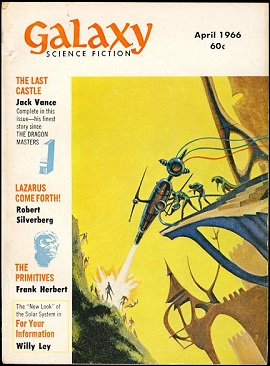
The Last Castle is a science fiction novella by American writer Jack Vance published in 1966. It won the 1966 Nebula Award for Best Novella and the 1967 Hugo Award for Best Novelette. It is about a future civilization of wealthy nobles who live in high-tech castles, which are maintained by an enslaved alien race, the Meks. After centuries of slavery, the Meks revolt, destroying the castles and slaughtering their elite inhabitants, until only one castle is left.

"Coming Attraction" is a science fiction short story by American writer Fritz Leiber, originally published in the second issue of Galaxy Science Fiction with illustrations by Paul Callé. The story was nominated for a Retro Hugo Award in 2001.
"The Beast that Shouted Love at the Heart of the World" is a 1968 science fiction short story by American writer Harlan Ellison. It won the Hugo Award for Best Short Story in 1969.

World's Best Science Fiction: 1969 is an anthology of science fiction short stories edited by Donald A. Wollheim and Terry Carr, the fifth volume in a series of seven. It was first published in paperback by Ace Books in 1969, followed by a hardcover edition issued in September of the same year by the same publisher as a selection of the Science Fiction Book Club.
The Dresden Files is a series of contemporary fantasy/mystery novels written by American author Jim Butcher. The first novel, Storm Front—which was also Butcher's writing debut—was published in 2000 by Roc Books.
Przekładaniec is a 1968 short science fiction comedy film directed by Andrzej Wajda based on the screenplay by Stanisław Lem, which was a loose adaptation of Lem's 1955 short story turned into a radio play Czy pan istnieje, Mr. Johns?. The title of the film was variously translated into English as Layer Cake, Hodge Podge, or Roly Poly.

Nebula Award Stories 3 is an anthology of award-winning science fiction short works edited by Roger Zelazny. It was first published in the United Kingdom in hardcover by Gollancz in November 1968. The first American edition was published by Doubleday in December of the same year. Paperback editions followed from Pocket Books in the U.S. in February 1970, and Panther in the U.K. in November 1970. The American editions bore the variant title Nebula Award Stories Three. The book was more recently reissued by Stealth Press in hardcover in June 2001. It has also been published in German.

Theodore Robert Beale, commonly known as Vox Day, is an American activist and writer. He has been described as a far-right white supremacist, a misogynist, and part of the alt-right. The Wall Street Journal described him as "the most despised man in science fiction".
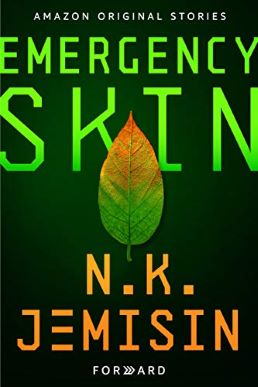
Emergency Skin is a science fiction novelette written by N. K. Jemisin. The story was first published by Amazon Original Stories as part of the Forward short fiction collection in September 2019. The story was well received, and it was awarded a Hugo Award, an Audie Award, and an Ignyte Award in 2020.
References
- ↑ 1969 Hugo Awards, at TheHugoAwards.org; retrieved October 9, 2024
- ↑ MASKS, at Science Fiction Writers of America; retrieved October 9, 2024